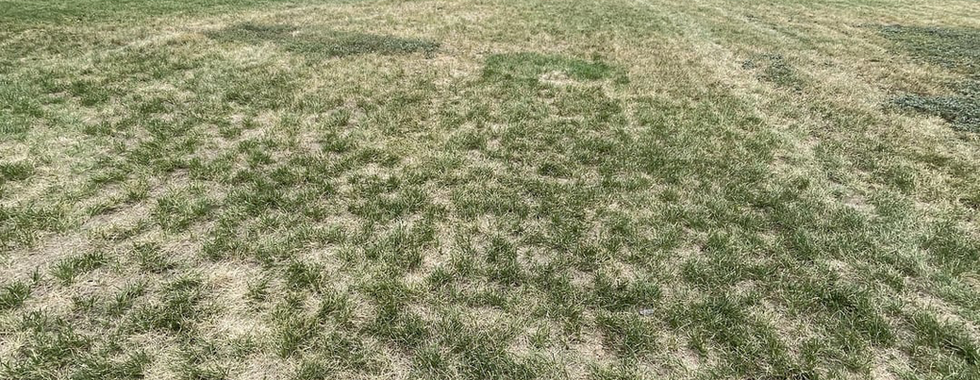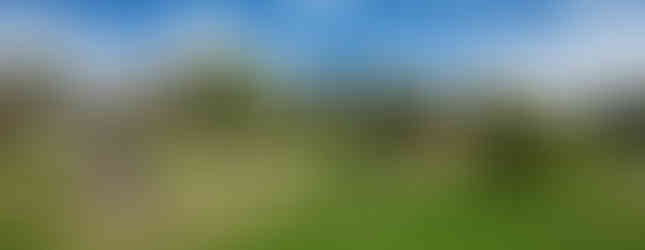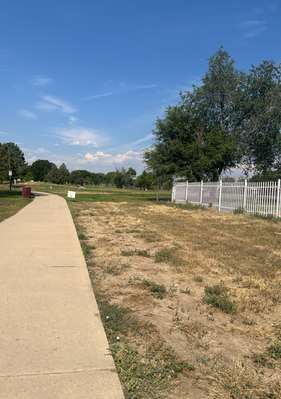
Save Tennyson Knolls Park: Updates from the City and Concerns from Neighbors
4
60
1
In June 2025, users of Tennyson Knolls Park began to notice extremely tall weeds, swaths of dying grass, and a significant change in the maintenance routine of the beloved park. To improve conditions of the green space, which serves several neighborhoods in Arvada, Westminster, and Adams County, neighbors shared some of the following images with the City, requesting more information on the drastic changes. Neighbors have begun to organize ideas and efforts to improve their park experience, and we encourage all park users to submit their thoughts at Save Tennyson Knolls.
These images depict areas across the entire park, showing dying trees, weeds exceeding 12" tall (violating city code), patches of bare ground, and cracked soils - indicating long periods of no water.
In response to the images and concerns, the city stated,
The City of Arvada parks department is currently changing the way we manage large blue grass areas in are [sic] park system. Bluegrass consumes large amounts of water to keep it green and needs a lot of maintenance to keep it mowed and looking nice. Large Bluegrass areas that are not regularly used for a sports field are being converted into native areas.
While members of the community are largely in support of converting turf to native grasses, neighbors are concerned about the lack of engagement, the notification process to the users of the park, and overall maintenance of the park as a whole, outside of the conversion area, where many photos were taken. In these non-conversion areas, mowing and watering were significantly reduced, resulting in bindweed and other invasive species overtaking vast areas of the park. Based on neighbors' comments, the issue started to become noticeable in Spring of 2025, but there were no indications at the time that Tennyson Knolls had been added to the turf conversion program, only that maintenance schedules had changed city-wide, per the following statement from the city:
This is a procedure to save water, protect air quality, and utilize human resources efficiently. This is a standard practice for all parks maintained by the city.
Only after concerns continued to be raised in July did the park get added to the City's Turf Conversion Program website, and signs were erected at the park. At the time, the website included information about turf conversion at Tomlinson Park (total park area: 14.2ac, conversion area: 1.56ac) and Club Crest North (total park area: 10.6ac, conversion area: 0.63ac), but no information about Tennyson Knolls Park existed other than an aerial image depicting the conversion area. This aerial image, at the time, did not depict the area labeled "Existing Native Grass Area" as currently shown on the website.
Information about the turf conversion program was only shared with the community via Reddit by another park user on August 15, 2025, after neighbors had organized to address park maintenance issues. Within this newly added information, the city emphasized that 7 acres of the park, or 63% of its total area, is outside the conversion zone. This acreage is significantly smaller compared to other turf conversion sites, where 89% and 94% of the parks remained unconverted to native grasses. In addition, the City identified a current area of the park which is considered an established native grass area, stating that area will remain unchanged, indicating this spot is a preview of what's to come in the 3 acre conversion area:
Existing native grass area that is to remain "unchanged" according to Arvada, indicating this is a preview of what neighbors can expect in the 3 acre conversion area in the future.
Finally, the City’s website clarified that large brown patches are not dying grass but dead bindweed that has been recently sprayed. While portions of brown areas are indeed treated bindweed, there are also several areas of dead grass and bare spots as well. The statement from the City raised additional concerns about park safety. Neighbors reported the absence of signage indicating chemical spraying, which violated city regulations and deviated from their past experiences at the park. The City of Arvada Maintenance Standards for Parks also states that graffiti will be removed on all surfaces in the park; however, large portions of fencing has been covered in graffiti for months with no efforts at removal.
The community has ongoing concerns about the city's lack of engagement regarding Tennyson Knolls Park. Instead of following a logical sequence—first announcing Tennyson Knolls Park's potential inclusion in the turf conversion program, then sharing implementation plans, and finally executing those plans—Arvada took a backwards approach. The City implemented the changes without any public notification, then received complaints from park users about the deteriorated conditions. Only after facing criticism did they announce a city-wide maintenance policy change and retroactively add the park to the turf conversion program. The public announcement came last, after all the implementation had already occurred and problems had emerged. This sequence of events has left several neighbors feeling that the lack of maintenance is unacceptable and an inequitable experience compared to other parks in the City. One neighbor stated,
My husband and I frequently visit a number of parks with our daughter, including Majestic View Park in west Arvada. It’s a beautiful space with expansive open areas that are currently well maintained. In contrast, the conditions at Tennyson Knolls Park suggest a clear imbalance. This seems like yet another example of the City of Arvada prioritizing parks and resources in west Arvada while neglecting those in east Arvada.
Lily Allish, an involved member of the community, stated,
Just a year ago, Tennyson Knolls Park was a well-cared-for and welcoming space. I loved walking my dogs there and seeing neighbors enjoying the open space. Now, the park feels neglected—overgrown, poorly maintained, and far less inviting. Many in our community are concerned about the City of Arvada’s lack of care, and some feel this drop in maintenance is both inequitable compared to other parks in the city and potentially retaliatory. Our corner of Arvada, in Adams County, already often feels overlooked, and it’s disheartening to see one of our few shared spaces decline so dramatically. We hope to see Tennyson Knolls Park restored to the vibrant community gathering place it was just a year ago.
A third neighbor said,
Our community deserves the same access to well-maintained parks as any other part of Arvada. Tennyson Knolls Park has declined, with weeds and bare spots replacing the vibrant space we once enjoyed. I support water-wise efforts, but they must be intentional, involve the community, and still provide safe, beautiful, and accessible recreation for all. I would like to see the City engage residents directly to decide the future of our park.
The addition of Tennyson Knolls Park to the Turf Conversion Program appears to be an attempt to justify the disparity in care for the park while simultaneously stating the change in maintenance is the same across the City, which contradicts the lived experience of residents who visit parks across Arvada. Two residents of Crystal Lakes neighborhood shared,
We were disappointed to learn about the Turf Conversion project at Tennyson Knolls Park. While we fully support efforts to conserve water and protect the environment, this decision appears to have been made without meaningful input from the local community. Clear information only surfaced after residents began voicing concerns. Meanwhile, as other parts of Arvada see new amenities like beer gardens, it often feels as though our neighborhood is treated as an afterthought—and that we must constantly fight to preserve and enhance the quality of our community spaces.
Neighbors of Tennyson Knolls Park and green space users across Arvada are encouraged to get involved to help advocate for responsible engagement and successful park maintenance to promote healthy native plants, biodiversity, and a high quality of life for all. If you want to join the effort to help Tennyson Knolls remain a park that suits the needs of residents while promoting water-wise, environmentally conscious solutions for green spaces, go to Save Tennyson Knolls.
Images of Tennyson Knolls Park from May 2022 (poodle in grass), August and September 2023, and September 2024 (pavilion)































































Since the City doesn’t care about maintaining most of the grass in the park, why not convert a large portion of it into a Dog Park that is fenced off. Then people also won’t leave their dogs waste all over the park as well.